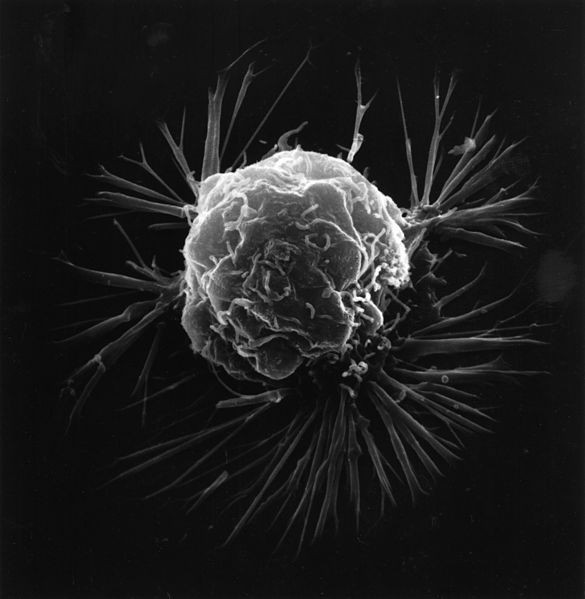Tumours shrunk to zero and relapse prevented in severe type of breast cancer

By inhibiting a protein network, researchers at the John Hopkins University were able to reduce the survival of cancer cells in a severe type of breast cancer. The tumours were brought to zero and relapse prevented on the mice, during the experiment.
Triple-negative breast cancer cells lack three proteins that would have helped the body respond to treatment. They are resistant to chemotherapy and include a high number of breast cancer stem cells, which are responsible for relapses.
It has been known that cancer cells show a marked increase in the activity of many genes known to be controlled by the protein hypoxia-inducible factor (HIF).
The present work led by Gregg Semenza, MD, PhD, decided to test whether blocking HIF could improve the effectiveness of chemotherapy.
It shows that chemotherapy turns on HIF, which enhances the survival of breast cancer stem cells, these are the cancer cells that must be killed to prevent relapse and metastasis.
Giving HIF inhibitors together with traditional chemotherapy decreased the size of the tumour in mice.
Treating triple-negative breast cancer cells with the chemotherapy drug paclitaxel showed increased HIF protein and activity levels, with an increased percentage of breast cancer stem cells among the surviving cells.
When the cancer cells were genetically altered to have less HIF, the cancer stem cells were no longer protected from death by chemotherapy.
The levels of a protein, multidrug resistance protein 1 (MDR1), which acts like a pump to expel chemotherapy from cancer cells was brought down by inhibiting HIF.
Treatment with digoxin and paclitaxel decreased the tumour size by 30 per cent more than treatment with paclitaxel alone.
The combination therapy also decreased the number of breast cancer stem cells and the levels of MDR1.
Treatment with digoxin plus a different chemotherapy drug, gemcitabine, brought tumour volumes to zero within three weeks and prevented the immediate relapse at the end of treatment that was seen in mice treated with gemcitabine alone.
The HIF inhibitor digoxin is already approved by the Food and Drug Administration for treating heart failure. Several other drugs that inhibit HIF have also been identified and are currently being tested on patients.
Triple negative breast cancer is among the most difficult to treat but research has been throwing some hope by way of using viruses to kill the cancer cells.
© Copyright IBTimes 2025. All rights reserved.





















